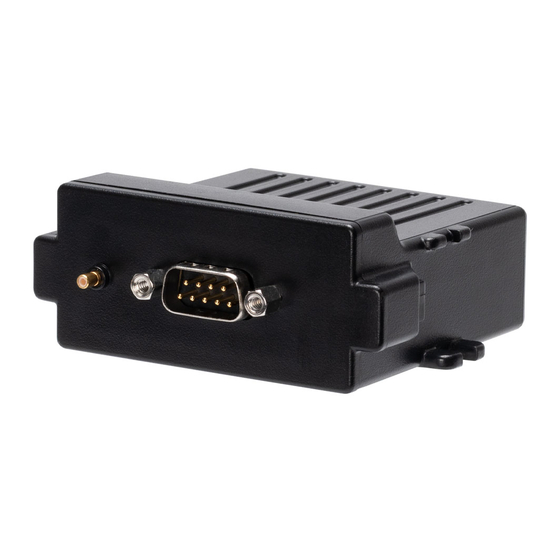astra telematics AT210 Посібник із швидкого старту - Сторінка 4
Переглянути онлайн або завантажити pdf Посібник із швидкого старту для GPS astra telematics AT210. astra telematics AT210 4 сторінки. Vehicle tracking device
Також для astra telematics AT210: Посібник користувача (9 сторінок), Посібник з монтажу (5 сторінок)

7. Configure Settings
a. Once the device is running and you can see output text scrolling in TeraTerm, you are
ready to configure the device by typing or pasting commands into the TeraTerm
window (note: these commands can be send by SMS also).
b. Configure GSM/GPRS network operator APN settings to suit your SIM using the
following commands:
$APAD,<apn_address>
$APUN,<apn_username>
$APPW,<apn_password>
if you dont know the appropriate APN settings for the network operator you are
using, you can look them up from:
c. Configure your server IP Address (or hostname) and port. This is the destination that
the AT210 will deliver data reports via TCP or UDP socket connections. The
commands are:
$IPAD,<ip_address_or_hostname>
$PORT,<port_number>
NOTE: IP address should be entered WITHOUT LEADING ZEROS
d. Select the required reporting protocol (i.e. packet format) using one of the following
commands:
$PROT,6
$PROT,16,<mask>
please contact Astra Telematics for advice and documentation on the above
protocols
e. Your AT210 is now configured will all the basic essentials for operation. The text
output in TeraTerm will show details of any errors.
f. Alternatively, use the $TEST command (send through TeraTerm or by SMS) to confirm
correct device operational status. The reply is user-readable and self-explanatory, but
you can find an application note with details on our website downloads page.
g. Note that the AT200 will not attempt to send any data until it has a good GNSS fix.
f. Please refer to the AT210 User Guide and various application notes for further details
of features and configuration options.
http://www.taniwha.org.uk/gprs.html
protocol 'K'
protocol 'X' (define <mask> to select required modules)
